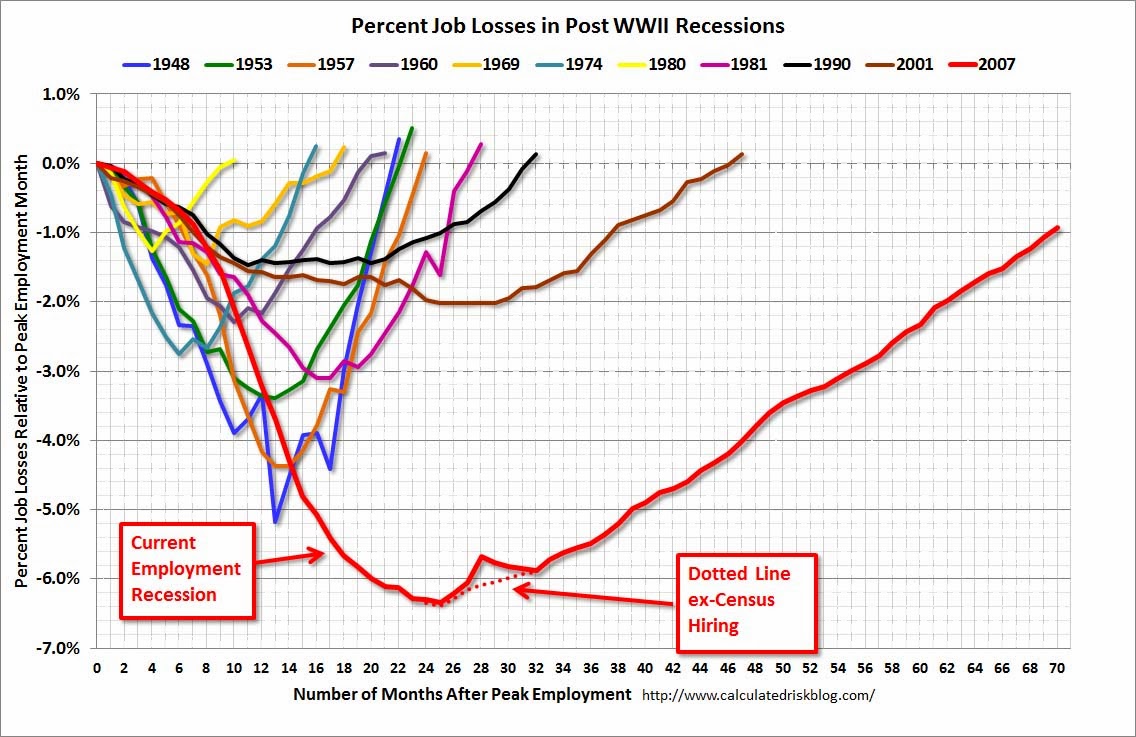It’s been five-and-a-half years since the US economy officially went into recession and three-and-a-half years since we entered the “recovery” phase of the business cycle. While technically in “recovery,” it’s no secret that when it comes to the labor market, workers are suffering the weakest turnaround in the post-WWII era.
And despite what you may have read, the truth is we’re still nowhere near full employment — at least not if you’re honest and you’re counting everyone who wants full-time work and can’t get it.
There are, of course, lots of things we could and should be doing to put millions of Americans back to work. For starters, we could begin chipping away at our $3.6 trillion infrastructure deficiency. Engineers, architects machinists and more could be called back into action to begin the important work of repairing and rebuilding our airports, bridges, schools, railways, energy grids, etc.
Millions more could be absorbed back into private sector employment with a simple fiscal adjustment working through the payroll tax. A full payroll tax holiday would stuff the pockets of nearly every employer and employee in America, reducing the wage bill and raising the take-home pay of more than 150 million people by an average of almost $250 a month. The beneficial effects to the rest of the economy would be felt almost immediately as consumer spending boosted the sales and profits of millions of businesses across the nation.
We could also create jobs directly by funding a grass-roots job-guarantee program run that could be run by the nonprofit sector. A New New Deal modeled on successful programs like the WPA, CCC or NYA could employ millions in just a few months time, taking anyone who was ready, willing and able to work but unable to find employment.
But we’re not doing these things or anything else that’s going to help millions of workers who are struggling to get by. Until we start electing people who recognize that the federal government can and must act to reverse the decades long decline in the chances of succeeding in the labor market, the system will only work for a minority of us.
If you have problems with the slides not advancing in Firefox, you can view the presentation on slideshare here.














Pingback: Effects on Bulgaria: Five Ways to Improve Your Odds of Succeeding in the Labor Market | Euro Economy
Pingback: Effects on Spain: Five Ways to Improve Your Odds of Succeeding in the Labor Market | Euro Economy